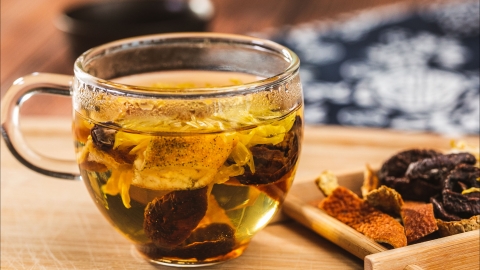Can chrysanthemum and dandelion be steeped together in water for consumption?
Chrysanthemum and dandelion can usually be steeped together in water for consumption, but should be consumed in moderation.

Both chrysanthemum and dandelion are common traditional Chinese herbs known for their heat-clearing, detoxifying, anti-inflammatory, and swelling-relieving properties. They can generally be steeped together in water. Chrysanthemum helps clear liver heat, improves vision, and disperses wind-heat, while dandelion clears heat, removes dampness, reduces swelling, and disperses nodules. For individuals with a hot body constitution experiencing symptoms such as heatiness, red and swollen eyes, or mouth ulcers, drinking water steeped with both chrysanthemum and dandelion may have a synergistic effect, helping to alleviate these symptoms.
Chrysanthemum helps regulate liver function and improve eyesight, providing relief for symptoms such as redness, swelling, and blurred vision caused by excessive liver heat. Dandelion also has the effect of clearing liver heat and improving vision; when steeped together, the two herbs can better support eye health. Clinically, dandelion is also used to treat various inflammatory swellings and abscesses, such as breast abscesses and internal carbuncles. When combined with chrysanthemum in a tea, it can exert a certain degree of anti-inflammatory and swelling-reducing effects. Although steeping dandelion and chrysanthemum together offers multiple benefits, moderation in consumption is still important.
Since both dandelion and chrysanthemum are cold in nature, they are not recommended for individuals with a cold spleen and stomach constitution, yang deficiency with cold symptoms, or those without excessive internal heat. Prior to consumption, it is advisable to consult a qualified physician or traditional Chinese medicine practitioner to ensure suitability for one's individual constitution.






